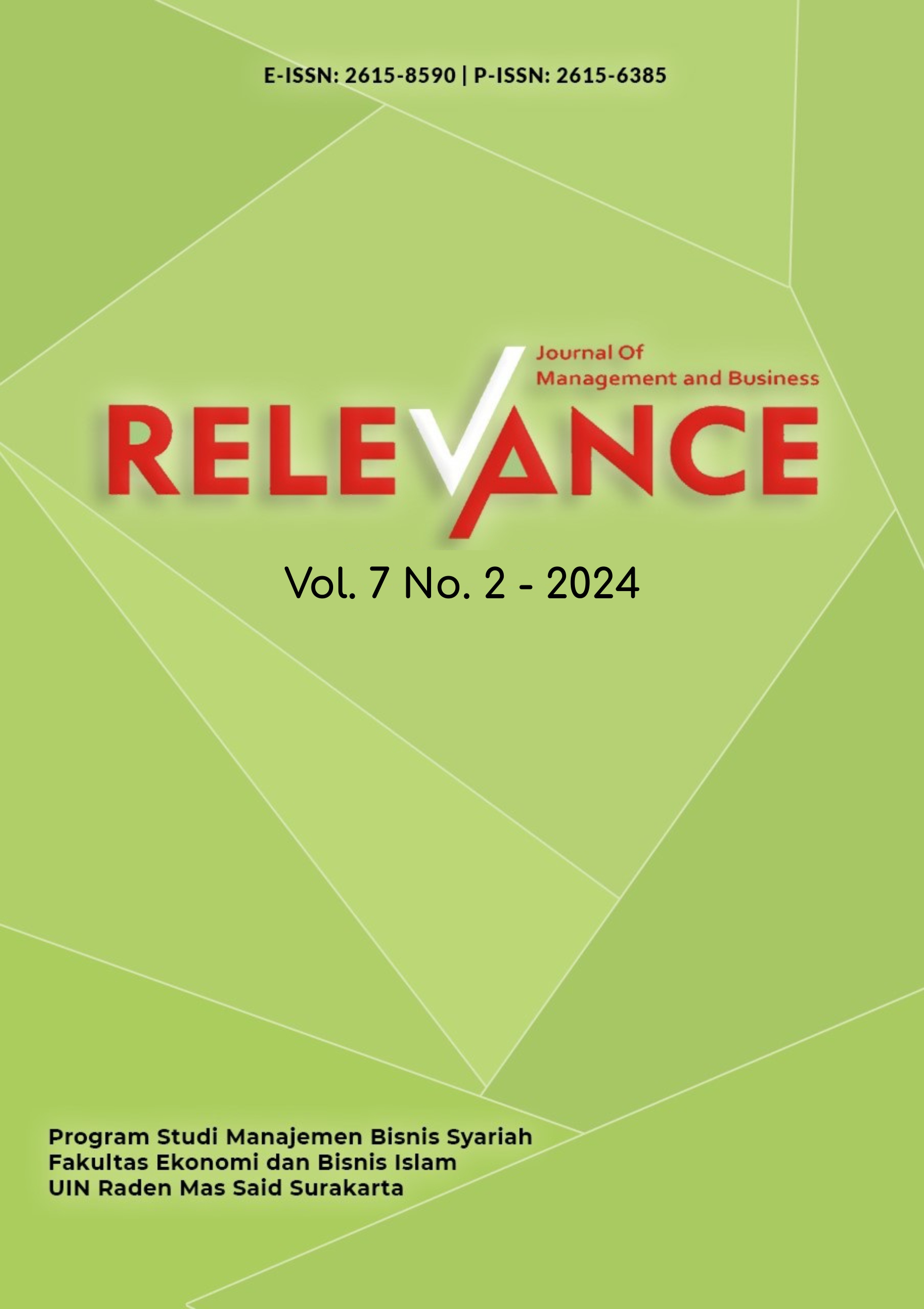##plugins.themes.academic_pro.article.main##
Abstract
This research explores the relationship between the development of superior Human Resources (HR) and the development of religious tourism in the context of increasing sustainable economic independence. The main object of research is Muinul Islamic Boarding School, an Islamic educational institution that has great potential as a religious tourism destination in Indonesia. Through a qualitative approach with a field research method, this study identifies the key role of superior human resources in managing and optimizing the potential of religious tourism. To see the role of human resources in increasing sustainable economic independence and how religious tourism development strategies in increasing sustainable economic independence. The results showed that the development of religious tourism can contribute to the local economy, by creating jobs, learning media for entrepreneurial students, increasing income from tourism, and expanding economic opportunities for local communities. This research produces an overview of human resource development to support religious tourism to increase economic independence in Muinul Islam Islamic boarding school.
Keywords
##plugins.themes.academic_pro.article.details##

This work is licensed under a Creative Commons Attribution-NonCommercial 4.0 International License.
References
- Adwimurti, Y., Rahmani, H. F., Selfiani, S., & Prihanto, H. (2023). Implementation of a Superior Human Resources Management Program in Encouraging Sharia Economic Growth and Exports in South Tangerang. Iccd, 5(1), 339–343. https://doi.org/10.33068/iccd.v5i1.640
- Dalimunthe, R. F., Sitohang, A. M. D., Aisyah, Darmilisani, & Sibarani, M. L. (2022). Strengthening UMKM Human Resources Towards Internationalization. East Asian Journal of Multidisciplinary Research, 1(5), 789–800. https://doi.org/10.55927/eajmr.v1i5.521
- Falah, R. Z. (2018). Membangun karakter kemandirian wirausaha santri melalui sistem pendidikan pondok pesantren. Tarbawi : Jurnal Pendidikan Islam, 15(2). https://doi.org/10.34001/tarbawi.v15i2.853
- Gintulangi, S. O., & Arsana, I. K. S. (2022). Strategi Pengelolaan Wisata Religi Berkelanjutan Untuk Melestarikan Tradisi Masyarakat Islam dan Meningkatkan Perekonomian di Kabupaten Gorontalo. Al-Mada: Jurnal Agama Sosisal Dan Budaya, 5(4), 563–578.
- Guriţă, D., & Scortescu, F. I. (2023). Religious Tourism and Sustainable Development of the Economy in the Context of Globalization in the Northeast Area of Romania. Sustainability (Switzerland), 15(16). https://doi.org/10.3390/su151612128
- Helti Nur Aisyiah, Septi Kurnia Prastiwi, & Asep Maulana Rohimat. (2023). Halal Awareness: Mediation of Religious Beliefs and Halal Certification in Choosing Halal Food Through An Online Food Delivery Application. INFERENSI: Jurnal Penelitian Sosial Keagamaan, 17(2), 233–260. https://doi.org/10.18326/infsl3.v17i2.233-260
- Jazil, S., Fahmi, M., Adi, S., Faizin, M., & Sholihuddin, M. (2021). Pesantren dan Pengembangan Ekonomi dalam Perspektif Maqashid Al-Sh ari ’ a h Pendahuluan Tidak dapat dipungkiri , pesantren memiliki rekam historis yang panjang dalam melakukan concern terhadap ekonomi umat . 2 Seperti yang diutarakan Fauzan Adhim , bahwa. Journal of Islamic Education Studies, 9(1), 83–103.
- Kim, B., Kim, S., & King, B. (2020). Religious tourism studies: evolution, progress, and future prospects. Tourism Recreation Research, 45(2), 185–203. https://doi.org/10.1080/02508281.2019.1664084
- M Imam, D. (2018). Strategi Pengembangan Kemandirian Ekonomi Santri (Studi Kasus di Pondok Pesantren El-Bayan Bendasari Majenang Cilacap Jawa Tengah) SKRIPSI Diajukan kepada Fakultas Ekonomi dan Bisnis Islam Institut Agama Islam Negeri Purwokerto Untuk Memenuhi Salah Satu S. 1–25. https://eprints.uinsaizu.ac.id/3743/1/COVER_BAB 1_BAB 5_DAFTAR PUSTAKA.pdf
- Mabrurin, A., & Latifah, A. (2021). Ar Rehla: Journal of Islamic Tourism, Halal Food, Islamic Traveling, and Creative Economy ANALISIS PENGEMBANGAN POTENSI PARIWISATA SYARIAH DALAM MENINGKATKAN PEREKONOMIAN MASYARAKAT (Studi pada Wisata Religi di Makam Gus Miek Kabupaten Kediri dan Mbah Was. Halal Food, Islamic Traveling, and Creative Economy, 1(1), 2776–7434. http://ejournal.iain-tulungagung.ac.id/index.php/arrehla/index%7C45http://ejournal.iaintulungagung.ac.id/index.php/arrehla/index
- Manning, C. A. (2015). The Construction of Personal Learning Networks to Support Non-Formal Workplace Learning of Training Professionals. International Journal of Advanced Corporate Learning (iJAC); Vol. 8 No. 2 (2015); Pp. 4-12 ; https://doi.org/10.3991/ijac.v8i2.4367
- Rohimat, A. M. (2018). Metodologi Studi Islam: Memahami Islam Rahmatan Lil’alamin (1st ed.). Gerbang Media Pustaka.
- Rohimat, A. M. (2023). Membangun Muslim Moderat. Lintang Media Utama.
- Sasongko, S., Damanik, J., & Brahmantya, H. (2020). Prinsip Ekowisata Bahari dalam Pengembangan Produk Wisata Karampuang untuk Mencapai Pariwisata Berkelanjutan. Jurnal Nasional Pariwisata, 12(2), 126. https://doi.org/10.22146/jnp.60402
- Sudarmo, S. (2020). Superior Human Resource Management in Business Practices: Achieving Sustainable. International Journal of Humanities, Literature & Arts, 3(1), 93–98. https://papers.ssrn.com/sol3/papers.cfm?abstract_id=3755504
- Susilawati, S. (2020). Pembelajaran yang Menumbuhkembangkan Karakter Religius pada Anak Usia Dini. Aulad : Journal on Early Childhood, 3(1), 14–19. https://doi.org/10.31004/aulad.v3i1.46
